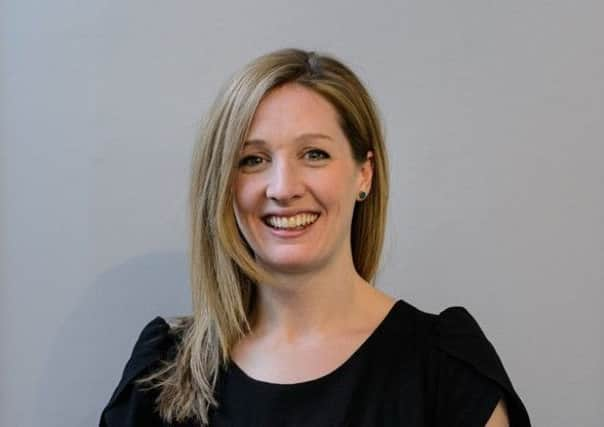Hazel Pearson: The property sector's next generation


Even as a younger professional myself I find it fascinating to discuss Generation Z’s perception of working life, and what form this will have taken by the time they hit Scotland’s glass-fronted towers.
Already, particularly in the creative sector, the concept of the office is mercurial – working plugged in at coffee shops and hotdesks is rapidly overtaking the traditional office.
Advertisement
Hide AdAdvertisement
Hide AdTake this one step further and ask school pupils about office life and you can bet the name David Brent crops up (which, by the way, they’re too young to remember). By the time they land in the workplace, with their native technical expertise, different expectations and more adaptable working patterns, what will the office mean to them – will the office even still be relevant?
Think about it. You can work remotely; collaborate over Facetime, meet over Skype, showcase on Facebook Live, market yourself on Instagram, have face-to-face meetings in a coffee shop. The “next gen of NextGen” is educated in a new, more collaborative, tech-led way, and if they do ever need to be in a workplace, they have Google-esque expectations.
By the time they reach the office, issues such as “wellbeing” (the way in which the office impacts on an employee’s physical and mental health) will be well established and benchmarked and the term “sick office” will have a whole new meaning. The focus will be on the workplace experience.
In sectors such as banking and insurance, the need for an office will remain, and to attract the best occupiers, it will be fundamental that developers, architects and designers stay abreast of future employees’ expectations and demands.
For this reason, one of the goals we’ve set for 2017 is to engage with Generation Z; and to improve links between the current generation of young property professionals and those coming through from school and higher education. We want to learn from innovative, positive design in the education sector; and to work with technology experts to understand and visualise how the office of the future might look.
Like never before, universities and colleges are forging strong partnerships with commercial partners and teaching students to work in a shared, collaborative and research-driven way, often in a mixed-use environment that might also include retail and leisure.
Their experiences of these facilities will undoubtedly shape their expectations of an office when they reach the workplace. We need to start looking at what these experiences and expectations are; or future offices may fall well short of what tomorrow’s business leaders actually want and need.
The BCO needs input from Generation Z, and our goal is to ensure we’re accessible and approachable; responsive and supportive when they join us. Recent BCO research on “placemaking” looks at the way in which modern office developments are increasingly becoming a reflection of these new expectations of how people live, work and spend their free time; rather than being “just another building to work” and as Generation Z moves through the workplace ranks, it is unlikely that this trend will reverse.
Advertisement
Hide AdAdvertisement
Hide AdThe office market has been, and may continue to be, challenging, and in difficult times, it’s vital to be agile and to respond to change.
One thing’s for sure though – with or without slides between floors, if they want to keep up, offices are going to have to move with the times.
• Hazel Pearson is chair of BCO NextGen in Scotland